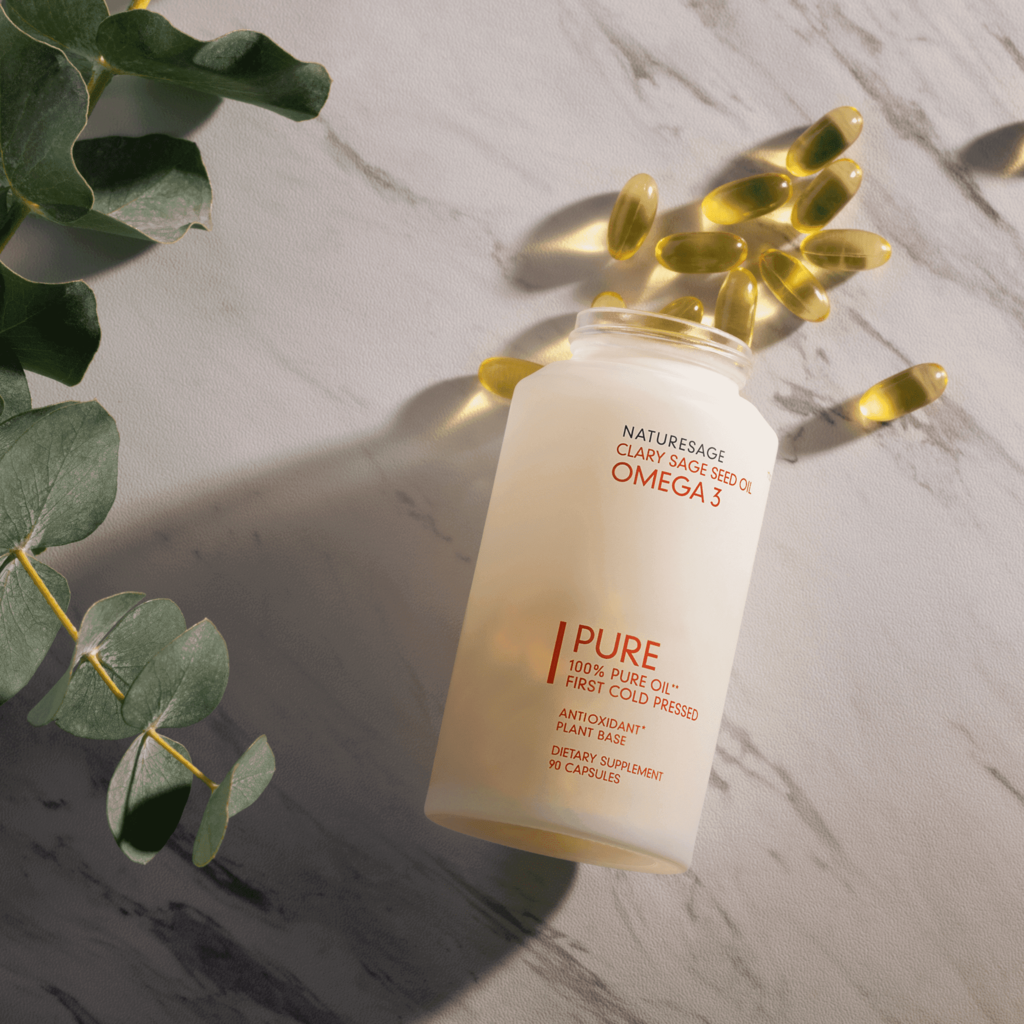Carrageenan
Native Carrageenan is the Best, Most Effective, and Safest Stabilizer for High Quality Vegan Supplements
Carrageenan comes from a family of sulfated polysaccharides and is derived from red edible seaweed. Carrageenan was first approved by the Food and Drug Administration (FDA) in 1973.
Carrageenan has long been used in the food industry for its thickening, emulsifying, gelling, and stabilizing properties.
There is an important and necessary distinction that needs to be made when discussing carrageenan, which has often been overlooked. This has contributed to inaccurate and confusing information surrounding carrageenan.
Food-grade, native carrageenan is frequently and incorrectly called simply “carrageenan”.
“Carrageenan” is not the food grade carrageenan in fact, is actually referring to degraded carrageenan, also called poligeenan -(Synthetic carrageenan).
Native carrageenan is a completely different molecule than degraded synthetic carrageenan or poligeenan.
Poligeenan is a smaller molecule with a molecular weight between 10 to 20 kilodaltons, and is used in medical imaging and never as a food additive. Poligeenan is also manufactured with strong acid hydrolysis and high temperatures.
On the other hand, native carrageenan has a higher molecular weight (>100 kilodaltons), contains no nutritional value, and has been used for decades in the food industry without any negative impacts reported or found in studies.
Native carrageenan is used widely in a variety of foods, including:
- Infant formula
- Yogurt
- Beer
- Cheese
- Deli meat
- Ice cream
- Other dairy products
Native carrageenan is the only type of carrageenan that’s passed quality and health testing and has been approved for food and supplements.
Native food-grade carrageenan has never been found to be harmful in humans (including infants), baboons, rodents, or pigs.
Yet, some critics continue to improperly cite scientific studies of poligeenan when attempting to discuss native carrageenan. They refer to the incorrect molecule to make misleading claims about both forms of carrageenan when they are in fact two completely different substances.
Your Body Cannot Create Poligeenan from Native Carrageenan
Some misinformed critics even go so far as to claim the gut can degrade native carrageenan once it’s inside the body into the harmful poligeenan form – this is scientifically impossible.
To manufacture poligeenan, the seaweed product requires a wash in a bath at 195 degrees Fahrenheit, then in an acid with a pH of 1 (comparable to battery acid), and for a duration of up to 6 hours.
It is physically impossible for your body to provide the environment necessary to create poligeenan from native carrageenan.
The method for creating food-grade native carrageenan is a completely different process. First, the seaweed is boiled in water with curing agents, such as lime (a product with a high pH). The seaweed is then rinsed, milled, and dried. There is no acid involved in the processing of food-grade native carrageenan.
Studies Show No Risk Associated with Native Carrageenan
No risk or negative health effects have been found as a result of diets that contain native carrageenan. Studies have been conducted on mice, rats, hamsters, guinea pigs, pigs, infant baboons and humans (including infants) and have found no significant negative impacts on any of the subjects.
Due to the high molecular weight of native carrageenan, gastrointestinal tracts are incapable of absorbing the large molecule, therefore it passes through the body in a manner similar to dietary fibers.
One study examined infants consuming formula with up to 0.03 percent total native carrageenan and found no negative impacts on their immune systems.
Animal studies on the impact of carrageenan have found no carcinogenic, tumor growth promoting, developmental or reproductive negative effects. Even baby baboons who were given formula with up to 1220 mg of native carrageenan experienced no adverse health impacts. In these studies, animals consumed native carrageenan levels much higher than the average human diet – up to 1000 mg/kg per day. The average human daily consumption of native carrageenan is between 18-40 mg/kg.
A Critical Review of Carrageenan
A 2014 study of native carrageenan published in the journal Critical Reviews in Toxicology found eight significant facts which prove that using food-grade carrageenan in food or supplements is not a cause for concern.
Their findings included:
- Native carrageenan’s high molecular weight prevents it from being metabolized by the human body. This means, when digested, native carrageenan passes through the digestive tract without being absorbed and is excreted in feces.
- Native carrageenan does not interfere with nutrient absorption.
- No toxic effects were found when carrageenan made up to 5 percent of a diet. In fact, the only side effect reported was soft stool and diarrhea, which is common when non-digestible fibers, like carrageenan, are consumed at a rate as high as 5 percent.
- Additionally, no intestinal ulcers formed when native carrageenan was consumed at doses as high as 5 percent of the diet.
- Native carrageenan has not been associated with tumors, cancer, toxicity, or developmental or reproductive defects.
- Native carrageenan used in infant formulas has proven to be safe for babies.
This critical review of native carrageenan examined various potential impacts and found it to be completely safe as an additive for foods and supplements.
Native Carrageenan is the Best Option for Vegetarian and Vegan Supplements
Quality-focused vegetarian and vegan supplement manufacturers use native carrageenan because it is the best method for manufacturing the highest quality vegan capsules. Derived from the Eucheuman red seaweed, native carrageenan has been used in vegan supplements for decades.
Based on best practices, leading US based manufacturers have determined the composition and quality of Eucheuman seaweed derived native carrageenan as the best stabilizing agent for vegetarian and vegan capsules.
Naturesage Uses Only the Highest Quality Native Carrageenan
Naturesage produces top quality, vegan, kosher, Omega-3 supplements. Using native carrageenan as a stabilizer, Naturesage supplements are more stable and last longer than most omega-3 supplements on the market.
Native carrageenan prevents NatureSage omega-3 supplements from drying up or becoming hard and also allows for the production of our extended-release tablets.
The moisture-stabilizing action of native carrageenan maintains the initial freshness of NatureSage capsules during storage. Finally, NatureSage omega-3 capsules are non-GMO and can be consumed by all vegetarians, vegans, and religious groups due to our rigorous quality standards.
Resources:
McKim JM. Food additive carrageenan: Part I: A critical review of carrageenan in vitro studies, potential pitfalls, and implications for human health and safety. Critical reviews in toxicology. 2014;44(3):211-43. https://www.ncbi.nlm.nih.gov/pubmed/24456237
https://www.fda.gov/food/ingredientspackaginglabeling/foodadditivesingredients/ucm091048.htm
Weiner ML. Food additive carrageenan: Part II: A critical review of carrageenan in vivo safety studies. Critical reviews in toxicology. 2014;44(3):244-69. https://www.ncbi.nlm.nih.gov/pubmed/24467586
Cohen SM, Ito N. A critical review of the toxicological effects of carrageenan and processed eucheuma seaweed on the gastrointestinal tract. Critical reviews in toxicology. 2002 Sep;32(5):413- 44. https://www.ncbi.nlm.nih.gov/pubmed/12389870
Joint FAO/WHO Expert Committee on Food Additives (JECFA). Safety evaluation of certain food additives and contaminants. Geneva2008. http://whqlibdoc.who.int/publications/2008/9789241660594_eng.pdf

Discovering Plant-Based Omega 3
Omega 3 fatty acids are vital to our health, and plant-based sources offer a sustainable and ethical way to enjoy these benefits. From flaxseeds to algae, nature provides a bounty of Omega 3-rich foods that support a thriving lifestyle.
Plant-based Omega 3s, such as ALA (alpha-linolenic acid), offer a powerful alternative to fish oil, promoting wellness without relying on marine ecosystems. These sources can be especially beneficial for those following plant-based diets.


Tailored for Women and Men
For women, Omega 3s can assist in managing hormonal fluctuations and menstrual discomfort. Men may find plant-based Omega 3s support heart health and muscle maintenance.